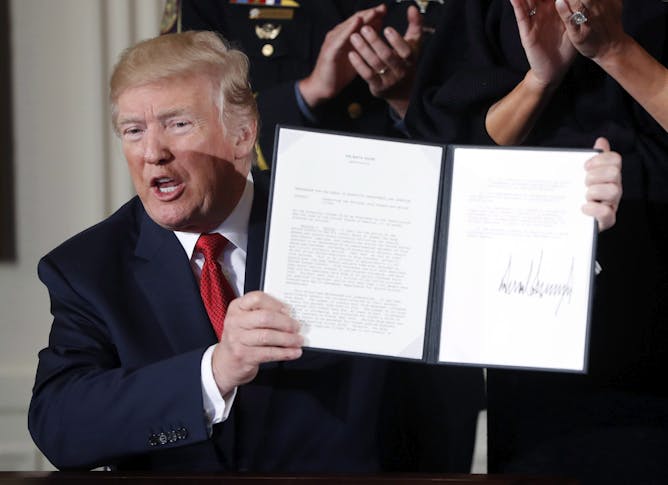|
Last month, Donald Trump declared the opioid crisis in the United States a national public health emergency. Trump was criticized for not providing any specifics on how his government would tackle the problem, but at least he elevated discussions about the issue to a new level. Why hasn’t Ottawa done the same thing here? That’s the argument made today in The Conversation Canada by Pauline Voon, a research associate at the BC Centre on Substance Use at the University of British Columbia. “By declaring a national public welfare emergency, the federal government could both acknowledge the scale of the opioid overdose crisis and unlock funds critical to a successful response,” she writes.
A few weeks ago, I was attending a presentation at my alma mater, the Rotman School of Management, where a number of researchers currently enrolled in a Doctor of Business Administration program were discussing their research projects. I was particularly struck by the work of Christine McCaw, who is looking into what kind of support companies offer to their employees who are victims of domestic abuse. I encouraged Christine to write an article for us and to invite our readers to take part in a survey that will be part of her final research project. Her article sheds light into this important problem. And the link to her research survey is here.
If you don’t understand what it means to “swipe left” or “swipe right,” then you’ve probably never used Tinder. Chaim Kuhnreich of Concordia University explains the dynamics of the mobile dating app and how men and women use their photos and short bios to attract the opposite sex – and if you think users focus only on their appearance, you’re not getting the full picture of what’s going on in this high-tech dating scene.
Regards,
|

President Donald Trump displays a presidential memorandum he signed, declaring the opioid crisis a public health emergency in the East Room of the White House, Oct. 26, 2017, in Washington.
(AP Photo/Pablo Martinez Monsivais)
Pauline Voon, University of British Columbia
Opioids kill an average of eight people every day in Canada. The federal government must officially declare this a 'public welfare emergency' and invest the funds critical to a humane response.
|

Women make up more than half the workforce in Canada. It’s time for employers to provide supports for workers who are enduring domestic abuse situations.
(Shutterstock)
Christine McCaw, University of Reading
Women make up a major portion of the Canadian workforce. That's why employers need to step up to help those in domestic abuse situations.
|

The act of spending money to impress others is a signal of resources to potential mates. Having resources is a valued trait by females.
(Shamim Nakhai/Unsplash)
Chaim Kuhnreich, Concordia University
Dating apps have changed the way people present themselves. Visual cues and short 100 word bios are the new currency of dating.
|
Culture + Society
|
-
Christopher A. Frilingos, Michigan State University
The Alabama state auditor defended Roy Moore, citing Mary and Joseph. A scholar goes back to early Christian texts texts to explain lesser-known beliefs about the relationship.
|
|
Politics
|
-
David B. Moore, University of Johannesburg
The protracted political crisis in Zimbabwe has worsened since President Mugabe fired vice president Emmerson Mnangagwa. Now the military has entered the fray, raising fears a coup is imminent.
-
Danielle Wood, Grattan Institute; Carmela Chivers, Grattan Institute
The 'yes' vote disproves that the rise of the minor party vote is the result of a cultural backlash from people who reject the progressive agenda, including the expansion of rights for minorities.
|
|